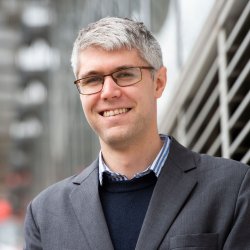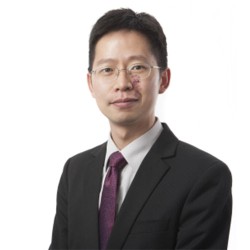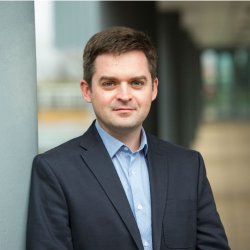Developing hybrid physics-informed AI digital twins for bioenergy applications
Join a multi-disciplinary and international team of researchers and work with the Supergen Bioenergy Hub of industrial and academic partners to develop new algorithms and approaches for bioenergy control and optimisation through novel physics-informed artificial intelligence digital twins to help the UK go beyond net-zero towards negative emissions.
Start date
1 October 2024Duration
3.5 yearsApplication deadline
Funding source
Faculty of Engineering and Physical Sciences at the University of SurreyFunding information
We are offering the UKRI standard stipend (currently £18,622 per year) with an additional bursary of £1,700 per year for full 3.5 years for exceptional candidates. In addition, a research, training and support grant of £3,000 over the project is also offered. Full home or overseas tuition fees (as applicable) will be covered.
About
We are seeking a highly motivated PhD candidate wishing to advance their career in a research-driven, interdisciplinary environment, starting in October 2024.
Bioenergy plays an important part of the UK Net Zero Strategy: Build Back Greener strategy, and will see a five-fold increase in the UK by 2050, according to the UK Biomass Strategy. Bioenergy with carbon capture and storage is one of the cheapest ways to generate negative carbon emissions and is thus a global imperative to reduce the impact of global warming.
The PhD student will work as part of a large research team including several industrial partners, as part of the Supergen Bioenergy Impact Hub, jointly funded by the BBSRC and EPSRC. They will undertake a range of research activities associated with digitalisation of bioenergy. Due to the complex feedstock characteristics of biomass and organic wastes, current models generally have poor predictive capabilities. This PhD project will utilise advances in artificial intelligence, mechanistic modelling, and uncertainty quantification to develop a suite of tools for rapid deployment of models across bioenergy industries (e.g. gasification, pyrolysis, anaerobic digestion, etc.). The tools for digital twinning of industrial processes will help to transform the sector and enable its rapid expansion and enhanced profitability to be more competitive with traditional fossil energy. The post holder will have significant opportunities for real-world impact through experiencing industrial application of their work with the Hub industrial partners.
There will be opportunities to collaborate with world-class researchers at other leading academic institutions, as well as with our industrial partners. We are seeking enthusiastic and motivated applicants with an interest in machine learning, computational optimisation and process systems engineering.
The successful candidate will be supervised by Dr Michael Short and Prof Tao Chen and will be based in the School of Chemistry and Chemical Engineering. The school has a long history of excellence in computational and process systems research. We have a vibrant, interdisciplinary group of researchers working in a variety of areas to solve global problems in bioprocessing, pharmaceuticals, energy, wastewater treatment, and catalysis.
The information and process systems engineering research theme holds regular research seminars and social events to provide a supportive and friendly team atmosphere. You will receive comprehensive research training and opportunities to participate in conferences, workshops, and seminars to develop professional skills and research network.
Eligibility criteria
Open to any UK or international candidates. Up to 30% of our UKRI-funded studentships can be awarded to candidates paying international rate fees. Find out more about eligibility.
Candidates must meet Surrey graduate entry requirements which include holding at least an upper second-class degree or equivalent qualifications in a relevant subject area such as chemical engineering, computer science, mathematics or other engineering/science disciplines with significant computational elements. A Master’s degree in a relevant discipline and additional research experience would be an advantage.
Applicants are expected to hold a first or upper-second class degree in a relevant discipline or equivalent overseas qualification, or a lower second plus a good masters degree (distinction normally required).
Some coding experience in a programming language (e.g., Python, GAMS, MATLAB, or Julia) are essential for the role. Experience in mathematical optimisation modelling, open-source software, and/or process simulation is desirable.
We strongly encourage candidates from under-represented groups, including but not limited to Female, Black, Asian, or minoritised ethnic communities (sometimes referred to as BAME). Additional supports can be provided upon request.
How to apply
To apply, please send your CV and cover letter to Dr Michael Short (m.short@surrey.ac.uk) and start an application via the Chemical and Process Engineering PhD programme page.
Studentship FAQs
Read our studentship FAQs to find out more about applying and funding.
Application deadline
Contact details

Studentships at Surrey
We have a wide range of studentship opportunities available.


